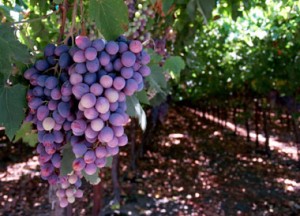ANIMALS AND MAN IN HARMONY
Much of the Millennium’s ecology can be understood from even a cursory reading of Isaiah 11:6-9:
The wolf shall dwell with the lamb, and the leopard shall lie down with the young goat, and the calf and the lion and the fattened calf together; and a little child shall lead them. The cow and the bear shall graze; their young shall lie down together; and the lion shall eat straw like the ox. The nursing child shall play over the hole of the cobra, and the weaned child shall put his hand on the adder’s den. They shall not hurt or destroy in all my holy mountain; for the earth shall be full of the knowledge of the LORD as the waters cover the sea. (ESV)
Here several pairings are described as being in a state of peace with one another. The seeming repetition of this principle is not only for emphasis. There are a few things that can be asserted about the overall nature of the Millennium as taught here. First, there will no longer be predators in the animal Kingdom. The former hunter and hunted now live and sleep among each other (v. 6). A little boy being able to lead animals and animals being prevented from harming children indicates that mankind regains his dominion over all the earth (vv. 6; 8; Gen. 1:26). Mankind abdicated his dominion to Satan when Adam sinned (Gen. 3:17-18; 2 Cor. 4:4; Eph. 2:2). Yet during the Millennium, Satan is bound and subsequently loses his control. As the reader will glean, a return to Edenic realities such as this is integral to the Millennium.
Next, carnivores will be made into herbivores (v. 7). This newfound vegetarianism is the result of animals no longer hurting one another (v. 9), for the plowman will overtake the reaper (Amos 9:13). This is another Edenic principle being put into effect as man was originally given only plants to eat (Gen. 1:29-30). This change in ecology is attributed to the earth being filled with the knowledge of the LORD. This will be done to such a degree that it is compared to the level by which the waters cover the sea (v. 9). When the concept of knowledge is pondered it is not usual to think of it as directly influencing those things that lack a mind. However, God’s exceptional knowledge is such that in the Millennium it modifies Creation into a harmonious state (Rom. 8:18-22).
INCREASED BLESSINGS FROM THE LAND
Amazingly, this level of harmony is to such a degree that mountains will break into shouts of joy and the trees will clap their hands (Is. 55:12). Even some Premillennialists may believe that this type of prophecy is only a general description of millennial blessings and not to be taken literally. However, remember that man’s dominion over the earth has been regained and through the power of God even stones may cry out (Luke 19:40). It is safe to assume that all theologians to one degree or another are underestimating the glories to be found in the Millennial Kingdom.
Isaiah 35 is an entire chapter devoted to describing the Millennium. Here we find that the deserts will rejoice and blossom like the crocus (v. 1). The crocus is among the first types of flowers to bloom in the spring (and at times it even arises out of the snow). Therefore, Isaiah is describing a period where previously desolate land now not only produces but does so early in the year. The deserts will now be able to support an abundance of life as they will become springs of water (v. 7).
In general the land across the planet will simply produce food in a way that those living after Adam and Eve’s exit from Eden have never experienced. Naturally, Israel will enjoy the greatest level of production. Those who pass by Israel will be so impressed by the change in ecology that they will compare her to the Garden of Eden (Ez. 36:34-35). Israel is to become such a renowned place for planting crops that there will be no famine in the land (Ez. 34:29). The Israelites shall plant gardens and enjoy their fruit (Amos 9:14).
In particular, the production and quality of grapes is to reach astonishing levels. When Moses sent spies to investigate Canaan they came to the Wadi of Eshcol.[1] It was there that the spies retrieved a single cluster of grapes so large that it had to be carried on a pole by two men (Num. 13:23). This was a sample of what the Hebrews could expect from the Holy Land once they dwelled there in obedience. This famous cluster of grapes is going to seem petite compared to those harvested in the Millennium. Wine is to become so plentiful that it is described as dripping from the mountains and flowing from the hills (Joel 3:18, Amos 9:13). An abundance of wine in the Millennium is to be expected. For Jesus told His disciples that He would drink wine with them in the coming kingdom (Matt. 26:29).
[1] A wadi is a dried river bed. Eshcol means “cluster.” To this day the Wadi of Eschol is renowned for its grapes.


Leave a Reply